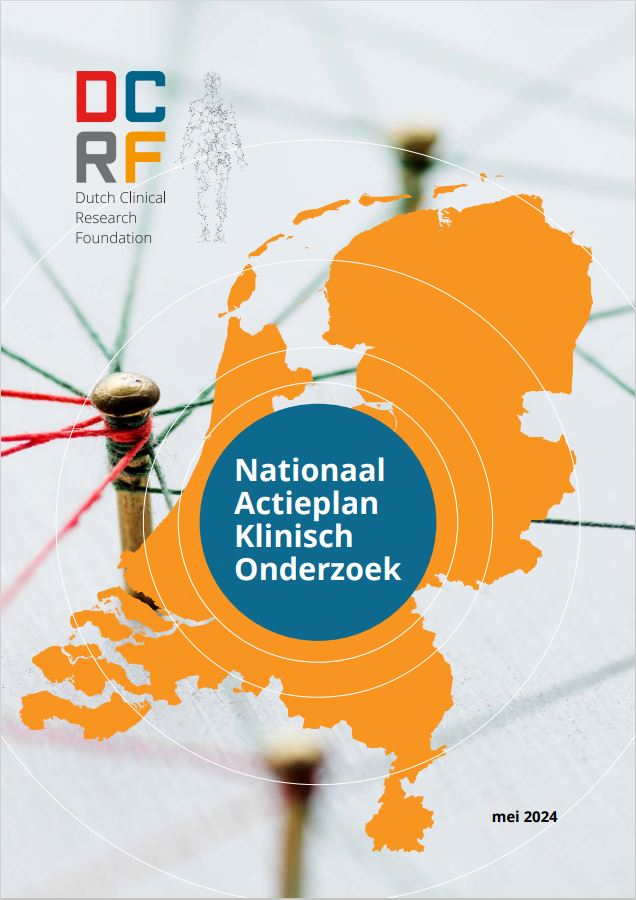
National action plan aims to further strengthen clinical research
National action plan aims to further strengthen clinical research
Please note: this interview has been translated from Dutch to English
A recent benchmark study showed that the Netherlands has a strong position in clinical scientific research. This is positive news for patients, professionals, and the economy. Bart Scheerder, chairman of the Dutch Clinical Research Foundation (DCRF), and Stan van Belkum, director of the Central Committee on Research Involving Human Subjects (CCMO), discuss the benchmark and the national action plan to which FAST has contributed together with partners.
“One of the strengths of the Netherlands is our ability to collaborate effectively. With DCRF we have a well-functioning partnership between relevant stakeholders in clinical research. This enables the Netherlands to strengthen its international position,” says Scheerder. Van Belkum adds: “In recent years, we have become increasingly focused on Europe, which is necessary as European regulations and cooperation are becoming more important in clinical research. But we are Dutch. So within this European perspective, we still want the best outcomes for Dutch patients and the Dutch Life Science & Health ecosystem.”
Benchmark
In December 2023, the benchmarking study titled ‘The Netherlands Positioning within the European Clinical Trials Ecosystem’ was published. This study was initiated by several organisations, including DCRF, CCMO, FAST, the Association of Contract Research Organisations Netherlands (ACRON), Invest in Holland, Topsector Life Sciences & Health (Health~Holland), and the Association Innovative Medicines (VIG). Earlier, DCRF had organised an expert meeting with the Regulatory Science Network Netherlands (RSNN) to discuss the main findings of the benchmark.
The study’s primary conclusion was that the Netherlands is performing well and that the Dutch Life Sciences & Health sector could be less modest about its achievements. However, in this competitive field, it is crucial to continue strengthening the position of Dutch clinical research. The study also highlights recommendations, including those on starting clinical trials, involving patients, and further strengthening early-phase clinical research. For the latter, optimising the use of preclinical research knowledge, known as derisking, is particularly important.
National Action Plan for Clinical Research
“The benchmark and the expert meeting were the starting point for us to work on targeted improvements,” says Scheerder. “Therefore, we have developed the National Action Plan for Clinical Research, together with FAST and other parties, which was published on May 20, International Clinical Trials Day. The national action plan outlines the key actions identified by a broad group of stakeholders in the field of clinical research. This includes the entire scope of medical scientific research, such as drug repurposing studies and clinical trials unrelated to medicines.”
The national action plan has a one-year duration, after which priorities will be reassessed. During this year, activities will be initiated in three key areas: procedures for conducting clinical trials, patient participation, and partnerships.
Speeding up the start
In comparison to countries like France (where regulatory measures streamline the process), it takes relatively long in the Netherlands for a clinical trial to actually commence. Budget negotiations, other agreements, and obtaining ethical approval all contribute to the lengthy preparatory steps. Van Belkum explains: “Medical-ethical review is not a major delaying factor, especially for drug studies that fall under the European Clinical Trial Regulation with its strict deadlines. It is mainly the local differences and local legal experts, who challenge everything on behalf of their boards, that cause delays. I believe there is definitely room for improvement here.” The national action plan aims to reduce the preparation time from the current 200 days to just 50 days.
Patient Participation
Patient participation is an area where the Netherlands generally performs well, but there is still much potential for improvement. Involving patients in research questions and protocols enhances the relevance and applicability of research results. Each protocol should include a Patient Information Form (PIF). Van Belkum notes: “On my first day at CCMO, I had already heard the term PIF 30 times. I decided to read one, and it’s almost unreadable. The balance between genuinely informing patients and completely legally covering all risks is lost. Simplifying the PIF is important to us. However, it’s not straightforward because many legal requirements must be included. We are considering adding a cover page with a simple summary and summarising recurring themes, such as privacy, in national brochures or videos so that they don’t need to be repeated in every PIF.”
Research Networks
Conducting clinical research has become increasingly complex due to (European) regulations and the rapid advancement of medical science. Research networks seem to significantly enhance the quality and speed of clinical research. Scheerder comments: “Looking at organisations like HOVON, the Foundation for Haematology and Oncology in Adults in the Netherlands, you see they have already established a lot, including mutual agreements, templates, etc. This means we have something to offer internationally for studies in haematological cancer. But HOVON is not alone another good example is, WCN, the Working Group of Cardiology Centres Netherlands. We want to examine existing networks, their organisation, and their impact. This could lead to models for future networks and foster greater harmonisation within the Netherlands.”
A final take home message from Scheerder: “The national action plan is a sector-driven plan for the sector, powered by the energy of all collaborating parties. We will create a separate section on the DCRF website to track progress. If you want to contribute to any of these areas, please contact your umbrella organisation or DCRF, as we welcome all support!”

